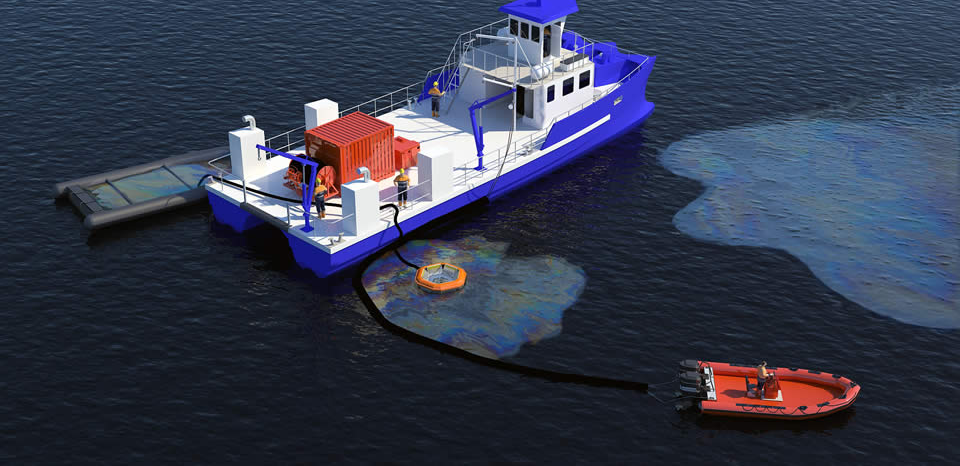The Complete Guide to Oil Spill Cleanup: From Immediate Containment to Comprehensive Recovery
3rd Jul 2025
Understanding Oil Spill Recovery
Oil spill recovery is a critical process that safeguards delicate ecosystems. In most areas, there are regulations requiring oil spill response equipment to be available on site and for a response plan in place ready for implementation in the event of a spill. Immediate action is essential to prevent extensive environmental damage and escalating operational challenges and costs.
The recovery process embraces a comprehensive, step-by-step approach that spans from immediate containment to oil recovery and then storage of recovered oil, including land and beach clean-up operations where necessary.
Immediate Containment: Halting the Spread with Robust Boom Technology
When an oil spill occurs, immediate containment is of utmost importance to prevent further contamination of surrounding waters and land. Rapid response actions are key to stopping the spread, minimising further damage to marine and coastal environments and keeping the cost of the response operation down.
Advanced solutions such as the HI Sprint single point inflation booms are quick to deploy, delivering rapid, reliable containment, ensuring that oil is effectively confined before it can cause widespread harm. This immediate intervention not only protects the environment but also facilitates subsequent recovery actions.
Separation and Skimming: Efficient Oil Recovery
The separation of oil from water is the next vital step in the oil spill response operation. Selection of the most appropriate skimmers is key to a successful operation and this selection will depend on the volume of oil to recover as well as the type and thickness of oil. A skimmer with a low water pick up rate ensures operations are carried out effectively.
A skimmer may use oleophilic discs, brushes or weir technology to recover oil. Skimmers such as the Komara range offer interchangeable recovery modules giving the skimmer versatility to be used with different oil thicknesses. Selection of the most appropriate oil skimmer not only maximise oil recovery but also minimise the environmental impact by swiftly removing oil from the water. Their efficiency is instrumental in maintaining both operational excellence and environmental safety during cleanup operations.
Storage Solutions: Safe and Effective Management
During and after the recovery of oil, secure and efficient storage solutions become imperative to managing these hydrocarbons safely and to avoid a repeat incident.
Vikoma International offers a range of storage solutions, including the robust Vikotank which is a self supporting tank without a frame, framed tanks such as it’s star tank and floating oil barges and tanks such as it’s flexible floating storage systems. These options are engineered to offer high levels of reliability and safety, ensuring that oil recovered from spills is managed effectively.
Prevention and Clean-Up: Minimising Long-Term Impact
Preventing future oil spill incidents is an integral part of the overall strategy to maintain environmental sustainability and operational efficacy. Early detection systems and prompt preventive measures significantly reduce the risk of a spill escalating into a larger environmental catastrophe. Strategic planning and robust safety protocols play a vital role in mitigating potential incidents before they occur.
When spills do occur, Oil Spill Responders can provide a well-planned clean-up operation to minimise environmental and cost impacts. The services of a third party may be employed or in-house teams trained up for primary response.
Commissioning and Training: Empowering Teams for Operational Excellence
After the acquisition of equipment, commissioning and operator training are essential to ensure that the equipment can be used quickly and effectively.
Comprehensive training and maintenance enhances the longevity and operational efficiency of the equipment, thereby reducing downtime and repair costs. By ensuring teams have the necessary skills and ensuring an appropriate maintenance regime is adopted through the lifecycle of the equipment, operators will be prepared and able to respond swiftly and efficiently to an oil spill situation.
Collaboration between Vikoma International and equipment owners is key to having the most appropriate equipment in place that can be relied upon to work effectively in the event of a spill with a team trained and ready to deploy it efficiently. Ongoing training exercises ensure knowledge is retained and available when needed.